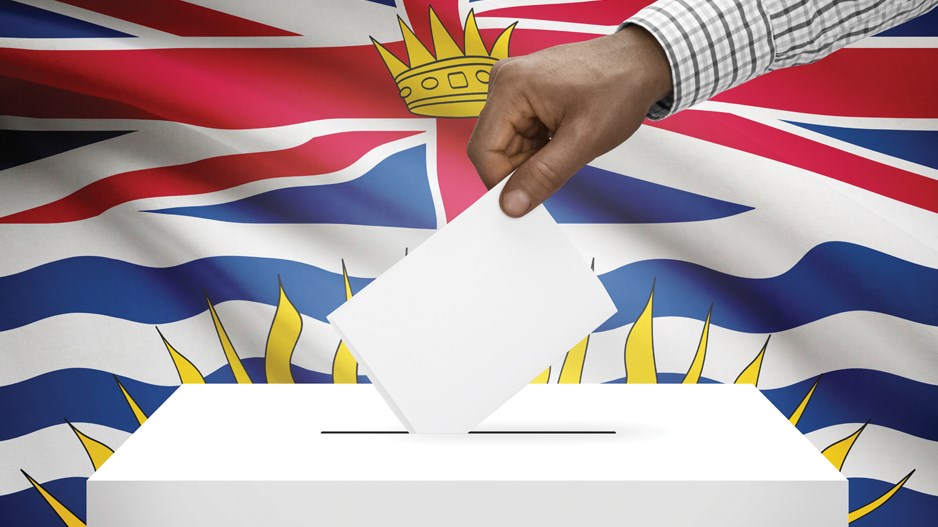It’s been more than a decade since British Columbians broke up with political polling. It wasn’t us, it was them; pollsters so disastrously wrong about the outcome of the 2013 provincial election that it shattered the trust between the public and the prognosticators.
We were never, ever, getting back together with pollsters, we said. And yet 11 years later, here we are, ensconced in our old dysfunctional relationship — putting our carefully rebuilt faith back into the numbers.
Polling is undergoing a bit of a renaissance in B.C. right now.
Firms you’ve never heard of, like Liaison Strategies, are popping up out of nowhere to toss out percentage points like candy to kids at a parade. Between the newcomers and the better-known firms, like Ipsos, Angus Reid and Research Co., it feels like not a week goes by without another poll appearing, sending off a cascade of political ramifications.
Much of this is to do with the BC Conservative Party.
It’s not clear which came first: the polls showing the party’s rising popularity, or the rising popularity itself. But there’s no sense trying to detangle that chicken-and-egg feedback loop at this point. The Conservatives are hugely popular (we think), and all the polls reflect it, which then helps the party get more popular (as measured by the polls).
Maybe it all makes sense.
Maybe there’s extreme logic in the pseudo-scientific black magic that is taking 1,000 people patient enough to respond to a robocall or sit on an internet panel, and extrapolating from them how five million British Columbians might vote 67 days from now for parties who haven’t unveiled their platforms or even named all their local candidates yet. Assuming they all vote. Which they won’t.
Remembering the 2013 election is helpful.
All the polls, for almost all the election, showed BC NDP leader Adrian Dix as having a dominant lead over BC Liberal premier Christy Clark.
Before the TV debate, in April, Justason Market Intelligence pegged the NDP as having a 22-percentage-point lead over the Liberals.
“It’s an insurmountable gap,” Barb Justason, declared to The Tyee, basing her ironclad confidence on an online/telephone survey of 600 British Columbians.
In the last week of the campaign, there were six public opinion polls. All those were wrong too. The NDP had a nine-point lead in the last Angus Reid poll, and an eight-point lead in the last Ipsos poll. The Liberals won the 2013 election by more than five points and 15 seats.
Pollsters blamed all sorts of issues — unprofessional fly-by-night firms that used shoddy methods, badly framed questions, a move from landlines to cell phones, and a large cohort of the voting public that was undecided and made up their mind just before entering the ballot box.
Throughout the campaign, Clark had tried to brush aside the doomsday polling with what sounded like logical arguments, which were nonetheless mocked.
“The polls don't tell us how people are going to vote because voting day is the only day that they vote,” said Clark. “It's like me asking you what you're going to have for dinner a month from now.”
After she won, she had some choice words for the media who spent so much of the campaign navel-gazing based on polls.
"You guys get this stuff for free and you should take it for what it's worth,” Clark said.
It was true then, and it’s true now. Free polling is not that useful, other than for troublemaking and fun.
It’s entertaining, for sure, and it helps feed into the horse-race narrative that dominates political coverage. But the really valuable stuff is the internal polling that parties pay for, which roll through multiple days, where they drill down into specific ridings, issues and candidates, applying better weighting of variables like voter turnout trends amongst demographic groups.
Of course, the parties guard that internal polling as secret. And so we in the public make due with a much lesser form, while pretending it's just as insightful.
BC United Leader Kevin Falcon is the latest to try and make the argument that polling this far before an election is of limited value because the public has yet to turn its mind to the election and parties have yet to unveil their major platform promises.
He has cited brand confusion between the B.C. and federal Conservative parties, the phrasing of the polling questions and the use of popular vote numbers to extrapolate 93 individual riding contests under our first-past-the-post system.
For his somewhat reasonable points, Falcon is getting the same dismissive laughter that Clark got in 2013. The source of this derision is what BC Liberal president Sharon White dubbed after the 2013 election as “the holy trinity of people who don’t know what they are talking about: the pundits, the pollsters and the political scientists.”
It’s worth noting that all three groups (myself included) were wrong in 2013. And since then, we’ve all slowly let ourselves get sucked back into breathlessly reporting on polling to the public. We carry much of the blame in this situation. And our justification, that polling is really the only available free public data about how political parties are performing, isn’t good enough.
Pseudo-science can’t replace actual election campaigning, on-the-ground door-knocking, nimble pivoting on issues and policies that resonate with actual people.
Clark had it right in the wake of the 2013 election.
"If there is any lesson in this, it's that pollsters and pundits and commentators do not choose the government,” she said. “It's the people of British Columbia that choose the government."
Keep that in mind when the next poll drops.
Rob Shaw has spent more than 16 years covering B.C. politics, now reporting for CHEK News and writing for Glacier Media. He is the co-author of the national bestselling book A Matter of Confidence, host of the weekly podcast Political Capital, and a regular guest on CBC Radio.




